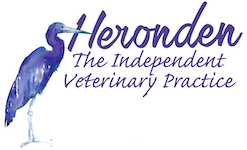Pre-op letter
We would be grateful if you would read the following regarding your pets surgery.
You will be given an admission appointment with a vet between 9.00 am and 10.00am. At this appointment you will be asked to sign a consent form, which details the procedure to be performed. Please check the contact details carefully and raise any queries you have with the nurse at this point. Please also make sure that any additional procedures (such as clipping nails, or microchipping) is mentioned at this time. By signing this consent form, you will be giving us permission to perform the procedure described and you will be agreeing that you understand the terms and conditions. It is important that you only sign this document when you fully understand it. If you are not sure about anything – then PLEASE ask us to explain further.
Pre-Surgery Instructions
- • For dogs and cats, please feed a small meal at 9pm the night before their appointment, but DO NOT give any breakfast on the day. Water can be left down for them until you come in.
- • All cats should be kept indoors the night before their visit, and dogs should be taken on a short walk before you arrive to allow them to relieve themselves.
- • We do ask that your pet is clean and dry when at the time of admission.
- • If they are taking any medication or have any pre-existing conditions that we may not already be aware of, please speak to us regarding this before your visit.
- • Please DO NOT restrict food and water for rabbits or guinea pigs. We would also appreciate it if a small amount of their normal food could be provided with them for their stay, that way there is no sudden change to their diet.
Vaccinations
We advise that their vaccinations are up to date prior to hospitalisation. If they are either not vaccinated or
his/her vaccination has lapsed please discuss this with us before the day of surgery.
Lungworm
All dogs must have had a Lungworm treatment within the last month prior to surgery. This is important to
minimise their risk during surgery as lungworm can cause problems with blood clotting. If you would rather
not give a treatment to your dog, we can run a blood test before surgery at an extra cost.
Pre-operative blood testing
Your pet may be having a sedation or a general anaesthetic. As all anaesthetics and sedations carry a small
amount of risk, we offer pre-operative blood testing to help minimise this risk as much as possible. This will
help the veterinary surgeon assess the function of important organs like the liver and kidneys and also helps
pick up any early signs of disease and adapt your pet’s procedure accordingly. Whilst this is advantageous in
any pet, we strongly advise a blood test in patients over eight years of age as the risks are increased in elderly patients and/or patients who are unwell. This will incur and additional cost and can be performed on the morning of your pet’s procedure.
Clipping
For most procedures it may be necessary to shave some hair. This may just be limited to the leg (for an
intravenous cannula) or the area required for a surgical procedure.
Post-operative care
At your pet’s discharge appointment the veterinary surgeon or veterinary nurse will discuss how your pet has been throughout their stay, give you information regarding any wound, feeding, exercise or medication
advice and let you know when your pet’s next check-up is due. It is important that your pet has a quiet,
warm, and comfortable space to rest at home. Patient that undergo anaesthesia or sedation will require 24-
48 hours rest at home, If you have any further questions or concerns, please feel free to get in touch.
The Heronden Team
